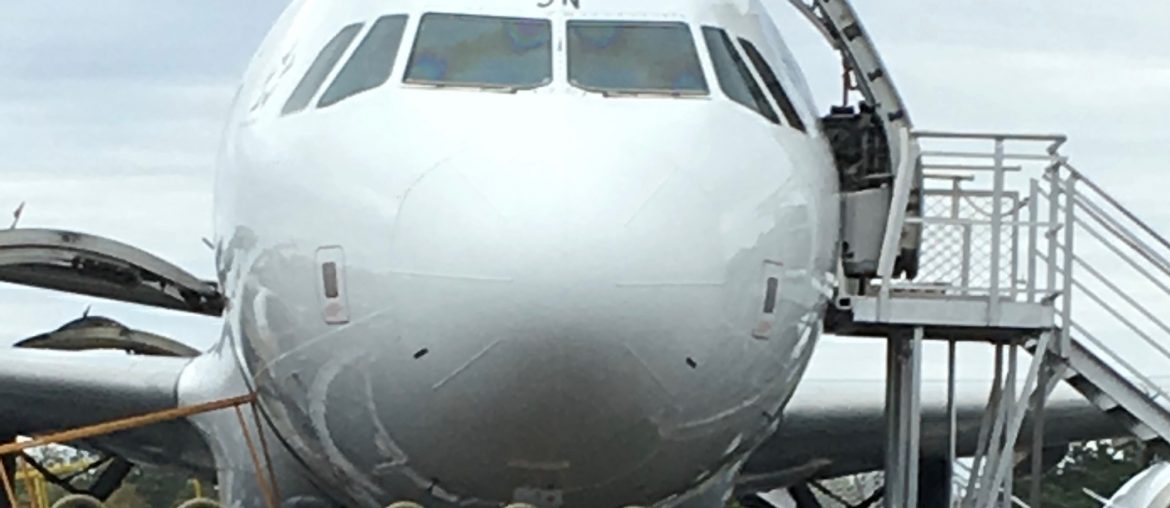Last Friday I was stopped at Sydney airport and denied my democratic rights. I was almost in tears at the counter when the airline representative told me that my connecting flight home was cancelled. I wasn’t distressed that my teenagers were home alone on Shabbat, that I had no accommodation, had been travelling for a week and wanted fresh clothes, and would miss social arrangements. I was shattered that the delay for over a day meant that I was unable to exercise my hard won right to participate in democracy: I missed voting in the Victorian State election.
By the time I landed in Sydney on Friday the early voting centres there had closed. By the time I landed in Melbourne on Saturday the polls were closed. There was no way for me to vote. No lining up at the local primary school, no sausage sizzle, no chatting in line, no dodging pamphlets with a wry smile, no delighting in my daughter’s first election, no tangle with ballot papers, no ticking boxes, no countdown watching analyst Antony Green on the ABC. No celebration of democracy.
In my distress, I was thinking about Emily Davison, the suffragette who was trampled to death by a horse in the 1913 Derby in the struggle to gain women’s suffrage in England. I was thinking of the unnamed woman who lost her life at the Eureka Stockade in Ballarat 1854 fighting for representation in parliament. I was thinking of my own great aunts Beth, Julia, Isobel, Tilly, and Sophie who were born at the turn of the 20thcentury and were the first generation of Australian women entitled to vote. I was thinking of Saudi women who only got the limited right to vote—in local council elections—in 2005 and Pakistani families who are still advised not to allow their women to vote.
In Australia, we take equal gender rights for granted but the emancipation of women is a relatively recent development in human civilisation. White Women in Australia gained active suffrage after Federation in 1902, following New Zealand in 1893. Scandinavian countries granted women the vote early in the 20th century. After the First World War, there was a wave of women’s suffrage in countries including the United Kingdom (1918). The Union of Soviet Socialist Republics and the Netherlands granted women suffrage in 1917; Austria, Czechoslovakia, Poland, and Sweden in 1918; and Germany and Luxembourg in 1919. Spain extended the ballot to women in 1931, and late to the party came France in 1944 and Belgium, Italy, Romania, and Yugoslavia in 1946. Switzerland gave women the vote in 1971, and women were given the right to vote in Liechtenstein in 1984. In Saudi Arabia, Brunei, UAE and Lebanon women still have only limited rights to vote.
As a Jewish woman, I have double jeopardy. Jews have been subject to many restrictions and exclusions around the world. Historically they could not be citizens, had no vote, and no legal rights or responsibilities. They had to wear distinctive clothing, could not join trade guilds, own property, access education or hospitals, were restricted in the practise of their religion. Jews were prohibited from entry into countries such as Norway, Sweden and Spain. Jewish men were first emancipated by French Emperor and upstart Napoleon in 1791.
Recently at a pleasant birthday dinner at an upmarket restaurant, we played a fun game. Over handmade goat’s cheese and locally farmed lamb we were asked by the gracious host to name a period in history into which we would like to have been born. One woman named the decadent court of the French Sun King, a Hong Kong Chinese Australian friend named the time of his own grandfather who had numerous wives and colossal wealth. I smugly nominated the present moment, because nowhere else in time or history has a Jewish woman had so many rights and opportunities. At no other time would I have had such legal protections and civic rights. Never in history would I have been so comfortable, secure, educated, entitled, protected, and well fed.
My frustration at being unable to exercise my democratic rights escalated when the election result in my electorate turned on a knife edge. On Saturday night while I finally flew home the female Labour candidate in our electorate looked to be close to an historic win. On Sunday night, after I had reached home, had a shower and slept in my own bed, and my distress was fading, Guru Antony Green tweeted that the Liberal Party’s Jewish candidate was leading by only 7 votes. 7 votes is damn close to my 1 vote. It made the potency of each individual choice very clear and immediate. There seemed to be so much at stake in my single (thwarted) vote. It made so much sense of Australia’s compulsory voting. I railed and ranted a bit. I wanted to contact the Victorian Electoral Commission to see if I could make a late vote. I wanted to sue the airline. I wanted to do something to guarantee that my vote would be counted, that my right to vote would be respected, that the suffragettes’ efforts were not in vain.
By Tuesday the margin between the Jewish and female candidates (each representative of previously disenfranchised groups) had widened to a 205 vote win to the Liberal Party. My single vote would not have influenced the outcome of the dramatic contest in my electorate. Nonetheless, next time there is an election, instead of publicly parading my right to vote, I will discreetly do a postal vote in my own home, walk to the end of my street with it and pump my fist in triumph as the envelope thuds into the letterbox.


Comments are closed.